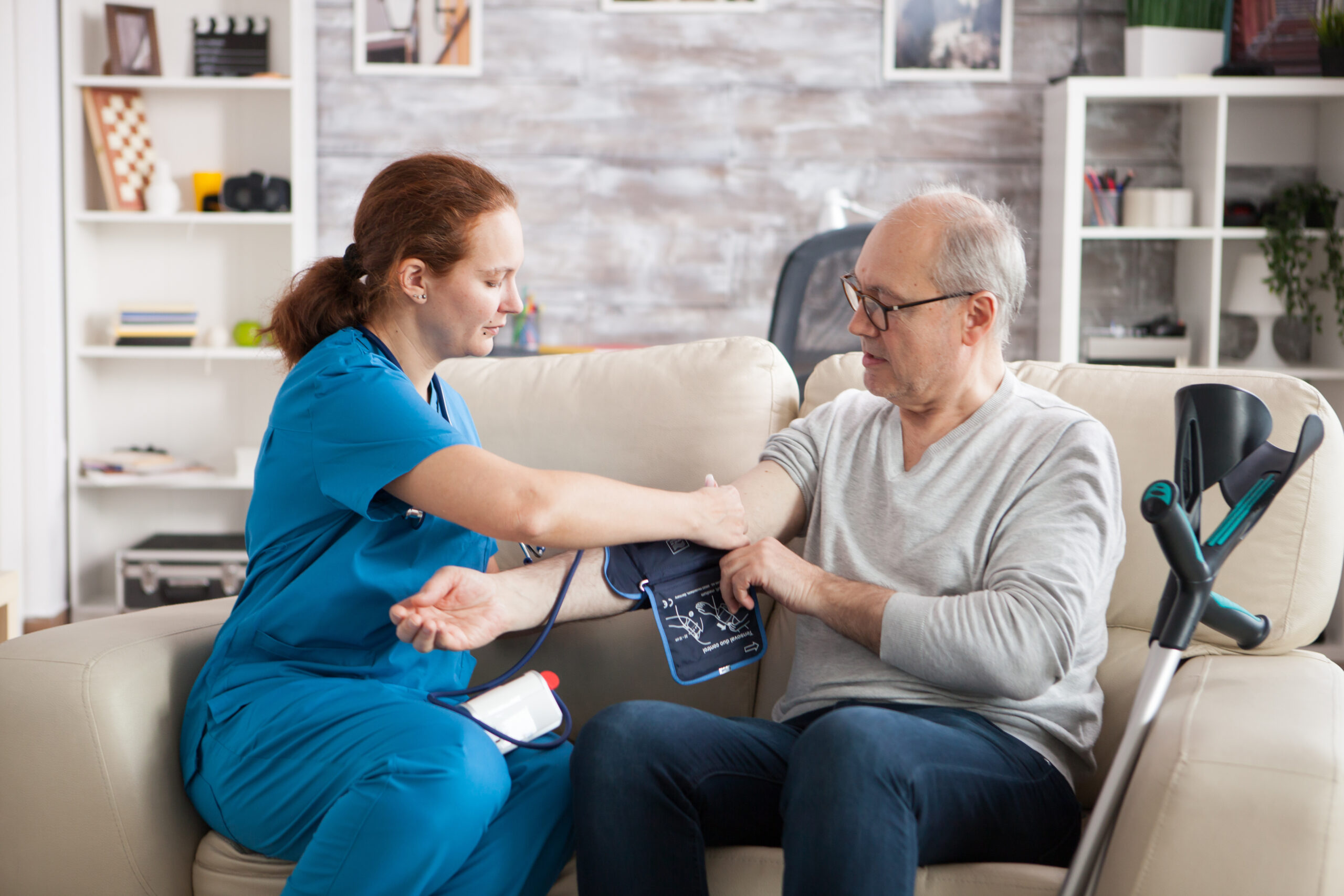
When you or a loved one experiences a health event that requires a hospital stay, you’re surrounded by experts around the clock who are ready to jump in whenever you need support. And while every patient is ultimately glad to get back home, the transition can be overwhelming for many, especially older individuals.
Luckily, many hospital readmissions can be prevented. Designed specifically to prevent hospital returns, the Traditions Health Readmit Rescue program is one way we’re helping patients recover and stay healthy at home.
“Readmissions create bumps in the road, both for a patient’s recovery and for their plan of care,” says Brandi Pervel, BSN, RN, Traditions Health vice president of clinical performance and education for Home Health. “It’s in their best interest to stay in their own home, where they feel safest. And Readmit Rescue is the targeted program that helps keep them there.”
Factors that affect hospital readmission
More at risk for readmission when there are so many new considerations around their care at home, it’s important we rally around newly discharged patients to better prepare them—and to help them—in their first several weeks back at home. From needing more assistance with the activities of daily living to managing new medications and therapies, without the right support, they can end up back at the hospital for additional care.
Aside from the worsening of an existing condition, reasons for readmission can vary widely. However, some common reasons include:
- Septicemia
- Congestive heart failure
- Heart attack
- Pneumonia
- COPD
- Renal failure
It also appears that age often plays a role. In fact, according to the Centers for Medicare and Medicaid, one in five elderly patients are readmitted to the hospital within 30 days of discharge. And the future implications are serious, affecting their mobility, ability to live independently, and overall health.
How the Readmit Rescue program works
“Introduced at Traditions Health in 2023, Readmit Rescue was born out of a need for short-term home health services,” Pervel adds. “We identified that a specialized program would work best and were committed to building it.”
The initiative begins at the time of referral. A coordinator reaches out to the patient’s hospital case manager, caregivers, and, sometimes, the patient themselves. The intent is to identify risks that could result in hospital readmission and reduce their potential through a personalized care plan that accounts for each patient’s unique needs.
Then, during the first 14 days a patient is home from the hospital, someone from the program — often a nurse or aide — visits them every day to help administer support with medications, ensure optimal recovery, and watch out for any health changes. We’ll also help coordinate any additional care that’s needed like occupational therapy or skilled nursing care.
“There can’t be enough communication,” Pervel adds. “Every person on the patient’s care team, including friends and family, must be engaged and willing to work together. To be successful, each of us needs to clearly understand our role in a patient’s recovery.”
Better patient outcomes
So far, Readmit Rescue has seen great success since launching in May 2023. In fact, of the 273 patients initially enrolled in the program in 2023, only six returned to the hospital for additional care.
“We’ve seen the benefit of increased collaboration between our providers, the patients’ caregivers, and the patients themselves,” Pervel says. “We’re all working together with the same goal in mind: to keep our patients out of the hospital and in their home environment.”
If you have a loved one who would benefit from Home Health at Traditions Health, submit a request care form to get started.